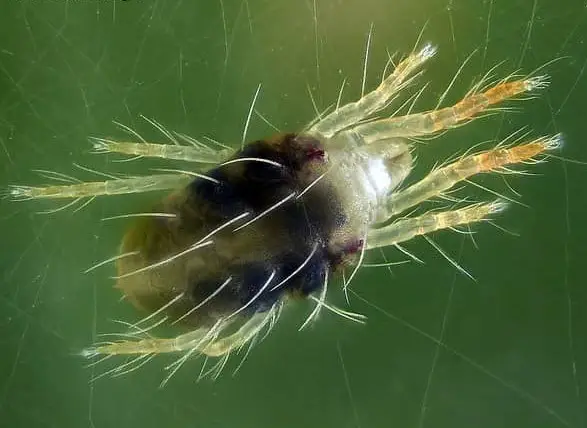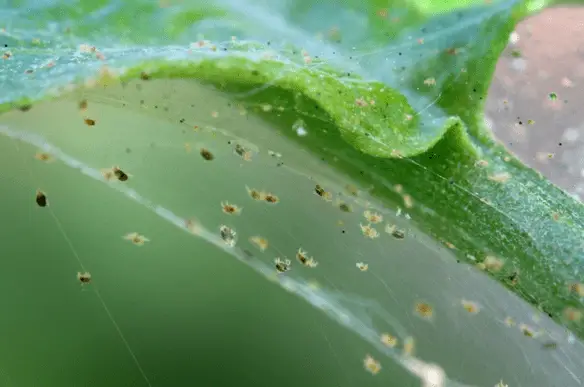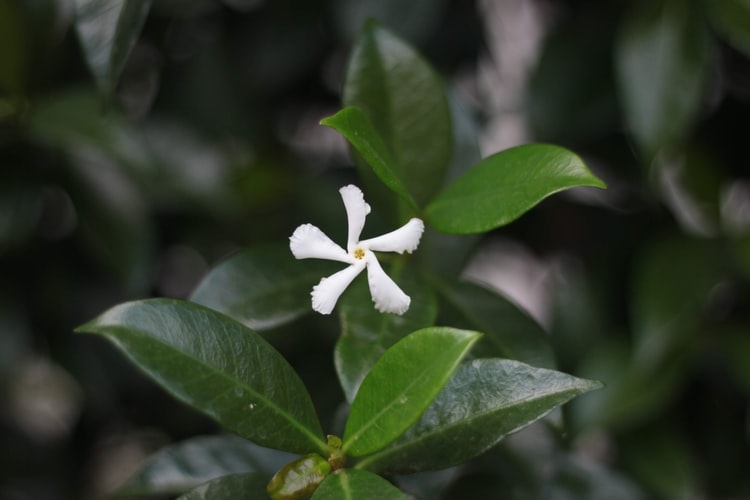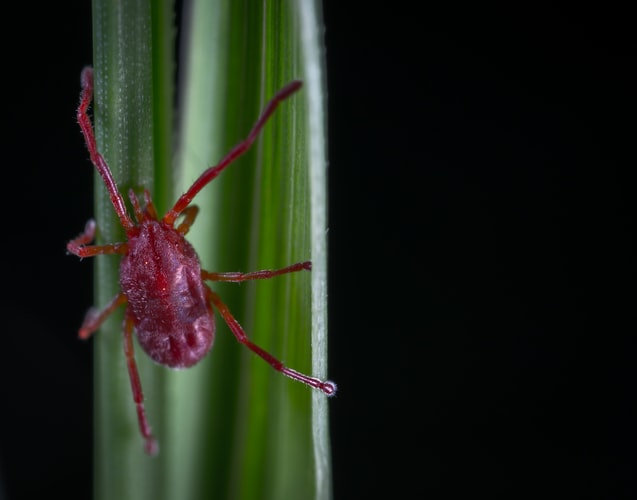Iron deficiency, scientific name Iron chlorosis, is a common phenomenon among citrus trees, and especially in desert areas. Citrus plantation can be really easy if you put in an adequate amount of effort.
Iron deficiency symptoms can be very obvious, that is of course when you’re knowledgeable of the symptoms. However, it can be confusing with zinc deficiency because the symptoms are almost similar. Both symptoms have yellow leaves but in different ways.
There are several ways to prevent your citrus trees to suffer from iron deficiency.
How to Prevent Iron Deficiency in Citrus Trees
There is an old saying “Prevention is better than treatments,” and don’t we all agree on that? Treatments can be so difficult and expensive at times, money and time-wise. To treat or prevent a tree or a plant from iron chlorosis we first need to learn the causes.
Citrus plants require a low pH soil, an acidic soil where the pH level is below 7. Avoid planting your tree in alkaline soil (soil pH greater than 7.5) If you have already planted your plant in high-pH soil, consider removing it as soon as possible. Recurring iron deficiency in plants (especially young plants) will definitely weaken them causing problems and insect invasions which will eventually shorten their life span.
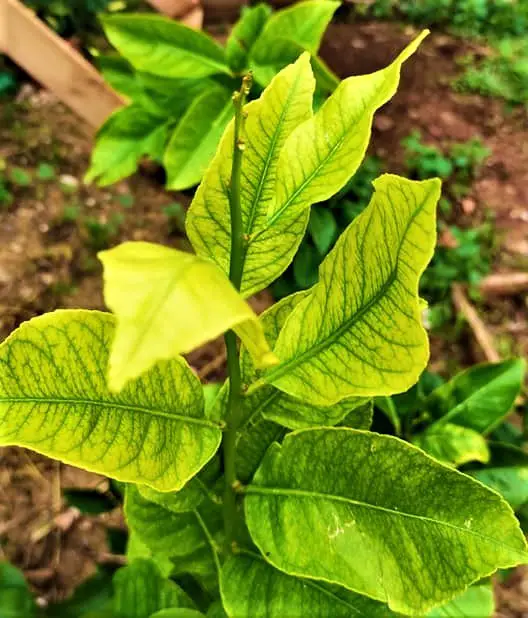
How to control Iron Deficiency in Citrus Trees
Avoid using heavy mulch or any plastic sheet mulch because this will not allow the soil to breathe and will make iron chlorosis even worse. You would also need to avoid over-watering and create a draining system so that your tree can only absorb the necessary hydration. If your soil is already lacking iron, over-irrigation will make this condition even worse.
NOTE
Before you try to treat your soil from iron deficiency, you need to be sure of the diagnosis as there are many other similar symptoms of different deficiencies. Once you use the wrong treatment, the problem would get worse.
How to Treat Iron Deficiency in Citrus Trees
There are a few ways to treat iron chlorosis once you recognize it.
Acidify the Soil
As I mentioned earlier, citrus trees need acidic soil. So if you have doubts about your soil being more alkaline, you should do a soil test first before you try to acidify it. I need to note that it is very difficult to acidify desert soil with caliche because it is buffered. This method would work better with gardens, bedding, or vegetable plants. This is because in bigger and larger spaces the soil is already well established and would take a great effort and budget to acidify it.
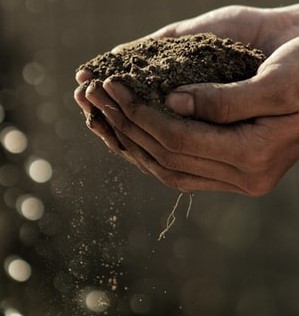
To acidify your soil, add soil sulfur powder or iron-sulfur. Mix the sulfur well with the soil, be careful to not add too much otherwise it will lead the soil to be overly acidic. The amount of sulfur you need to add depends on what type of soil you have and the age of your citrus plant.
Another option would work if you have a small area, you can try to add sphagnum peat.
However, concerning big trees, this would require a trunk injection of iron along with soil applications of sulfur and iron. This method can be used at any time of the year as long as the trees are not frozen or suffering from drought stress.
Use Iron Fertilizer
For small trees and plants, you can use iron chelate on the soil. When you purchase iron chelate, make sure that all the elements are chelated. if you purchase a non-chelated product, the soil will not be able to absorb the iron.
Use Foliar Sprays
This application is done directly on the leaves. This method needs to be done constantly to treat iron chlorosis. Once you stop the application, you might notice that your tree’s new baby leaves will grow with iron deficiency symptoms. Also, this process can be difficult for big trees.
Apply this solution during cold weather. In summer, spray it either in the evening or the very early morning.
NOTE
There are a lot of remedies out there to show how to correct the soil’s lack of iron by pouring rust water or iron shavings onto the soil. This will not correct iron deficiency. It might be beneficial to some plants, but the chemical iron needed by the plants is not the same as the one obtained from solid iron.

